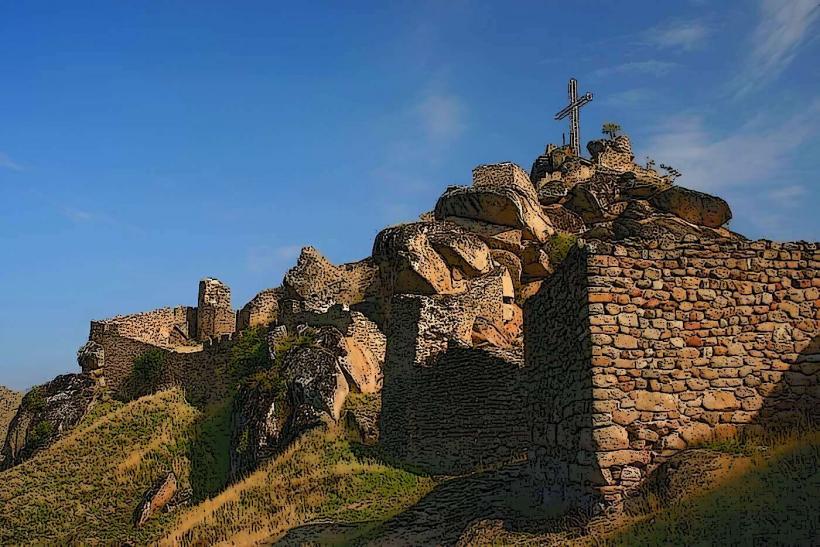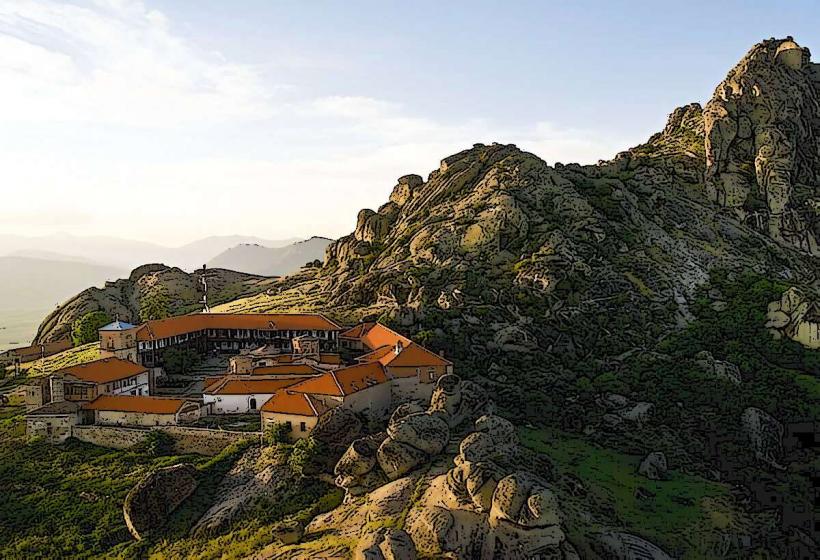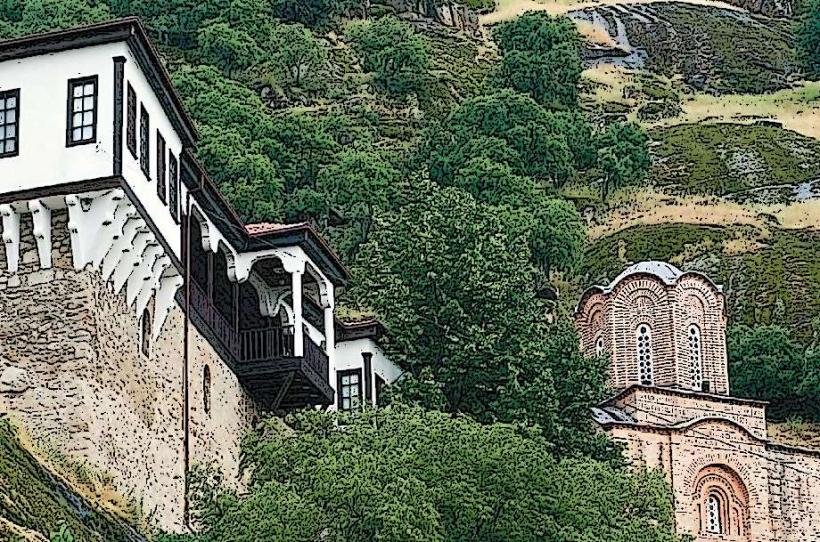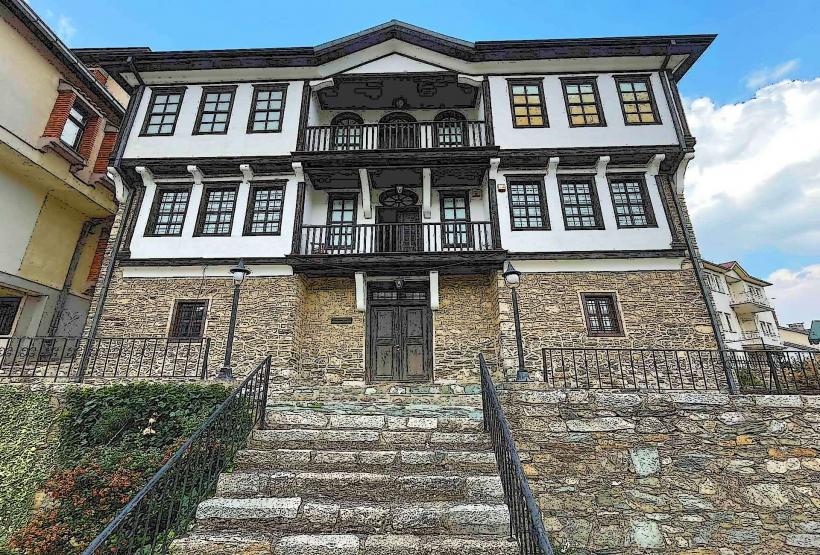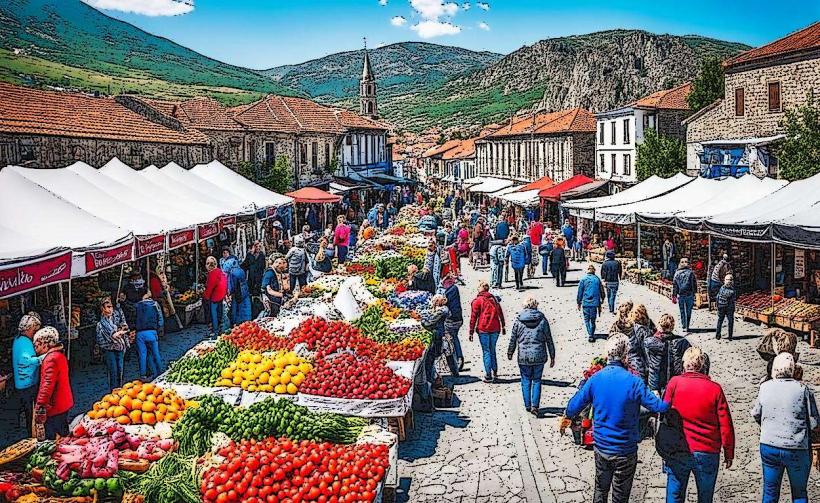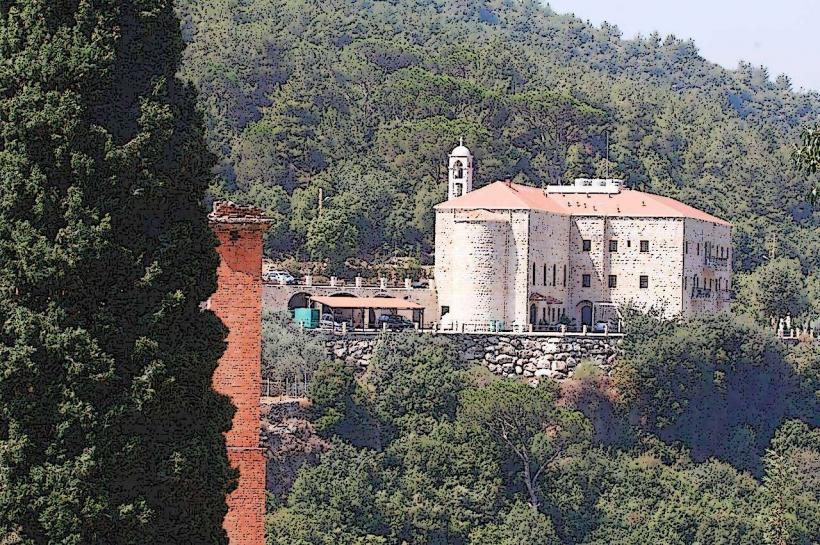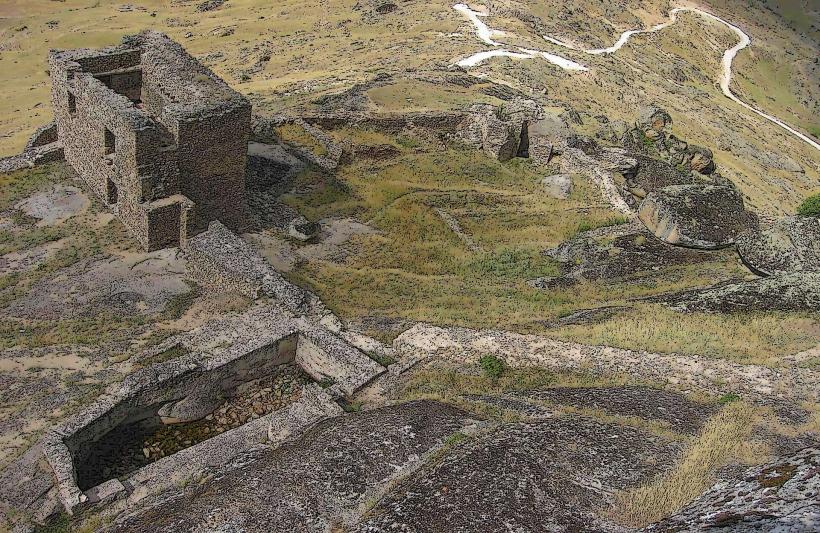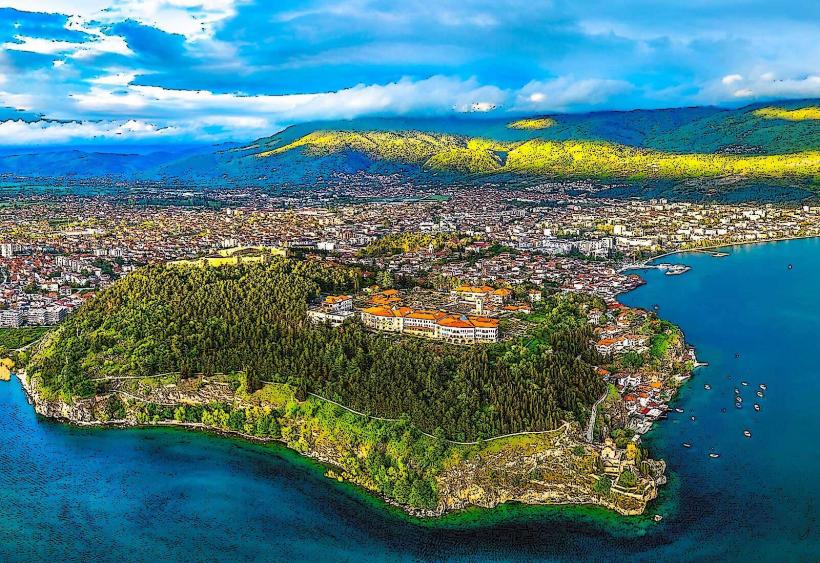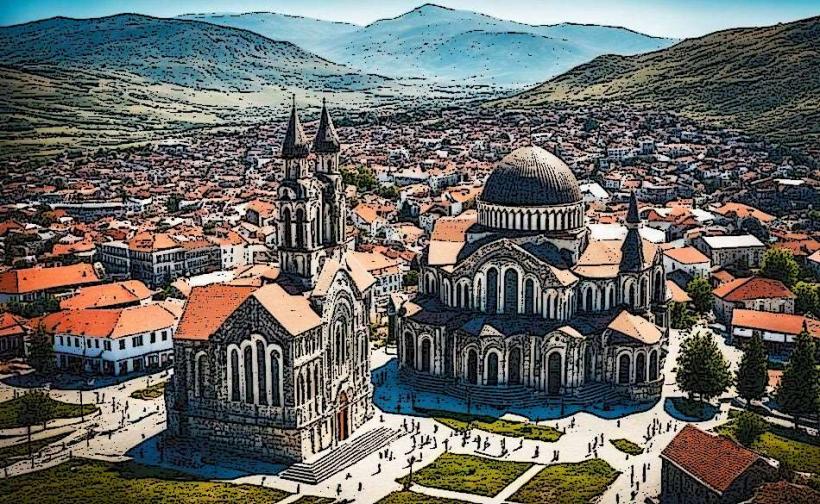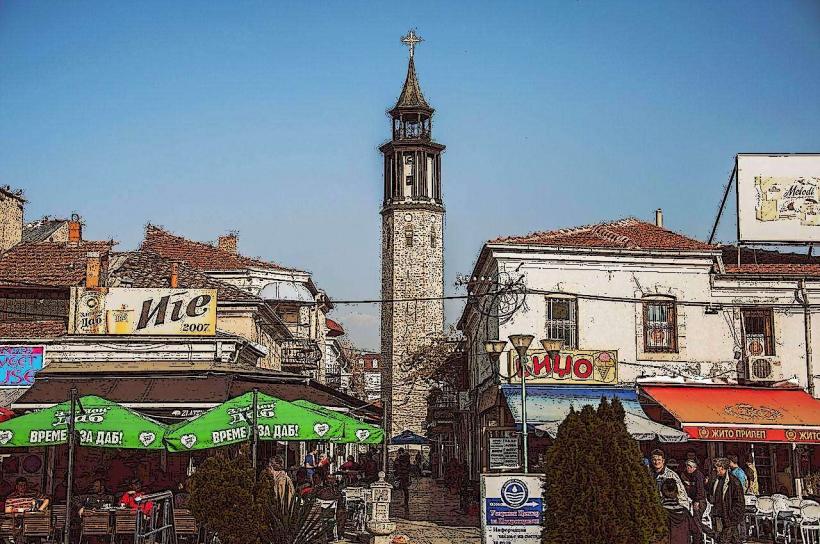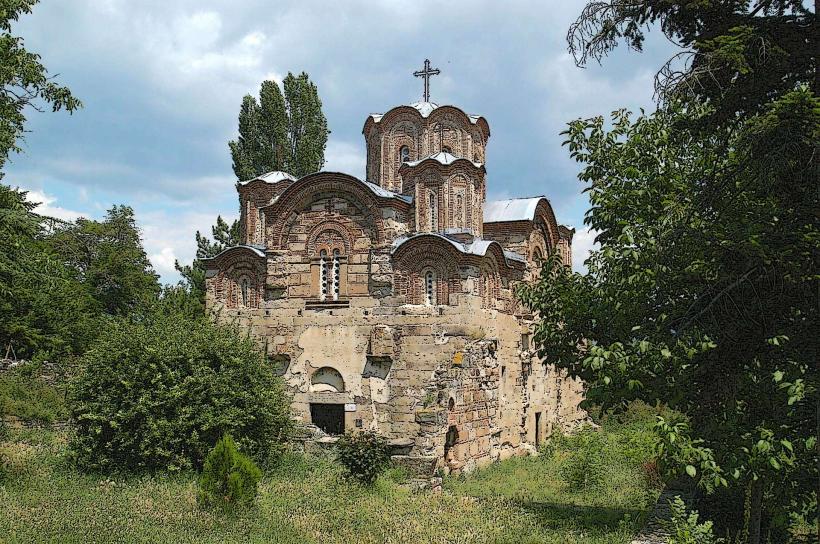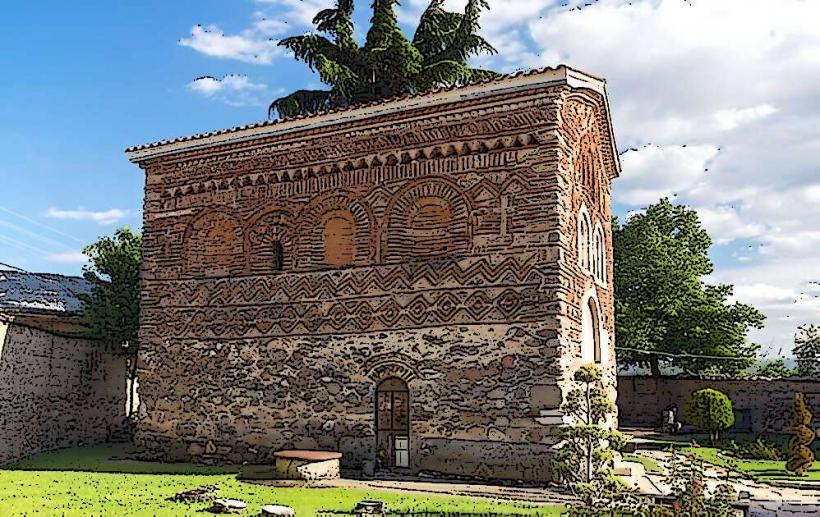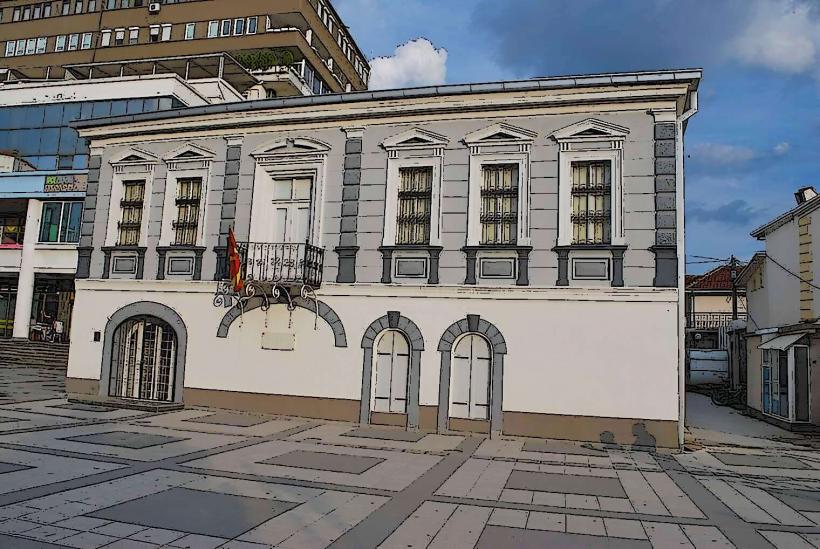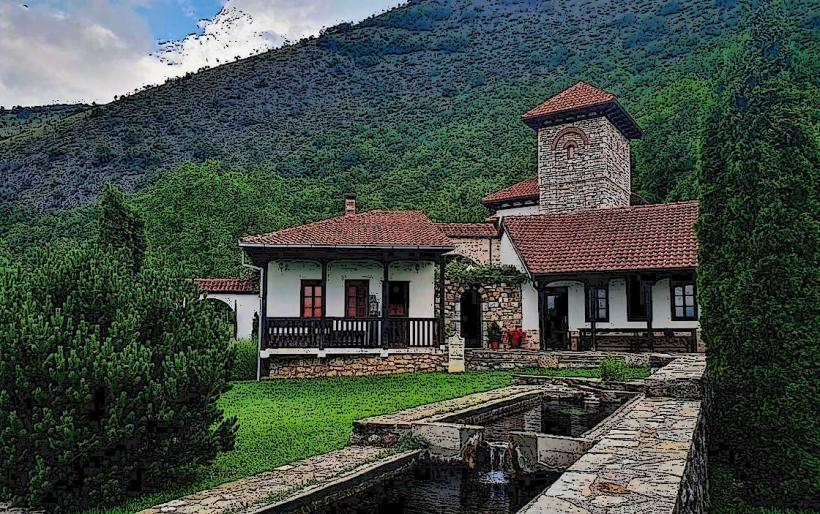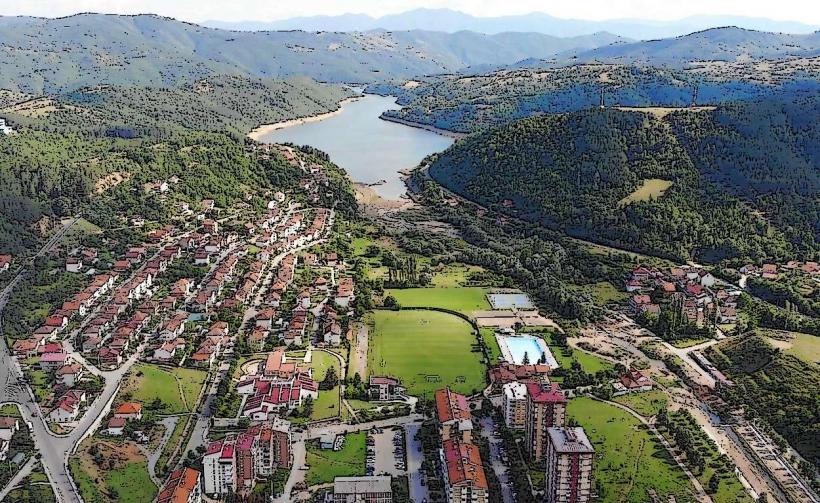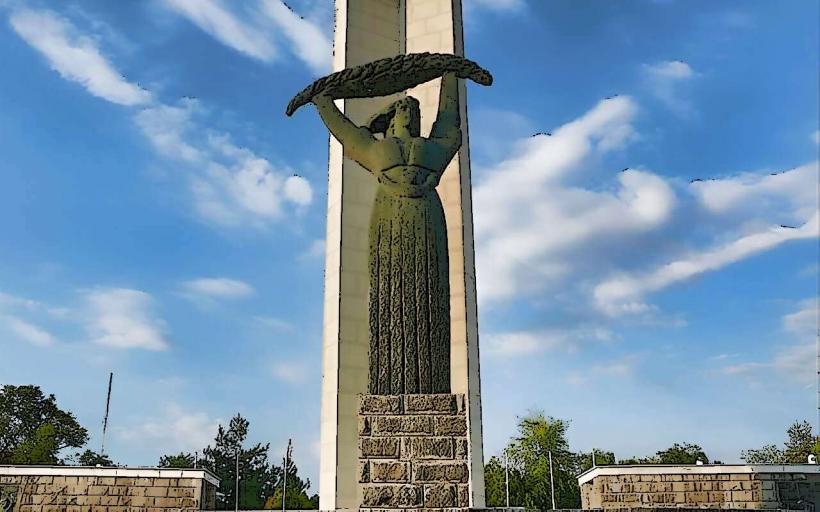Information
Landmark: Monastery of St. PetkaCity: Prilep
Country: North Macedonia
Continent: Europe
Monastery of St. Petka, Prilep, North Macedonia, Europe
The Monastery of St. Petka is an Eastern Orthodox monastery situated on the slopes of Marko's Towers, overlooking the city of Prilep, North Macedonia. It functions as a religious site and a historical monument.
Visual Characteristics
The monastery complex includes a church, bell tower, and monastic cells. The church is constructed primarily from stone and brick, featuring a cruciform base with a central dome. Exterior walls are whitewashed, contrasting with red tile roofs. The bell tower is a separate structure, also stone-built, with an open belfry.
Location & Access Logistics
The monastery is located approximately 3 km northwest of Prilep city center, on the slopes leading to Marko's Towers. Access is primarily by a paved road that branches off from the R1307 regional road. Limited parking is available near the monastery entrance. Public transport options are not direct; a taxi or private vehicle is recommended from Prilep.
Historical & Ecological Origin
The Monastery of St. Petka dates back to the 13th century, with significant renovations and additions in the 14th and 19th centuries. Its original purpose was a monastic dwelling and a place of worship dedicated to Saint Paraskeva (St. Petka). Specific architects are not documented from its initial construction.
Key Highlights & Activities
Visitors can observe the frescoes within the church, which date from various periods. The monastery grounds offer views of Prilep and the surrounding Pelagonia plain. Religious services are held regularly.
Infrastructure & Amenities
Basic restroom facilities are available on site. Limited natural shade is provided by trees within the complex. Cell phone signal (4G/5G) is generally available. No dedicated food vendors are present directly at the monastery; options are available in Prilep city.
Best Time to Visit
The best time to visit for photography is late afternoon, when the sun illuminates the monastery facade and offers clear views of Prilep. Spring (April-May) and Autumn (September-October) provide mild weather conditions. No tide requirements apply.
Facts & Legends
A local legend suggests that the monastery was built on the site of an ancient pagan temple. A verified historical oddity is the presence of frescoes from different centuries, showcasing evolving artistic styles within a single structure. A tip for visitors is to combine the visit with a hike to Marko's Towers for panoramic views.
Nearby Landmarks
- Marko's Towers: 0.5km North
- Monastery of Archangel Michael: 2km East
- Prilep Clock Tower: 3km Southeast
- Tobacco Museum: 3.5km Southeast

